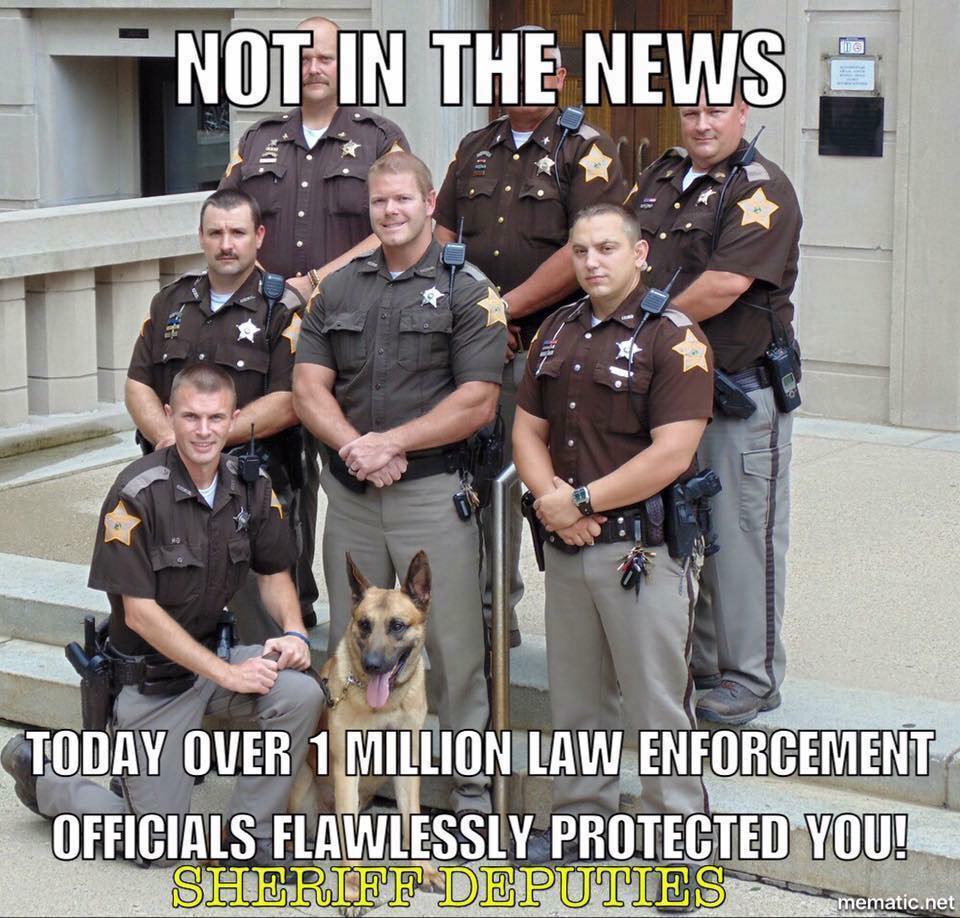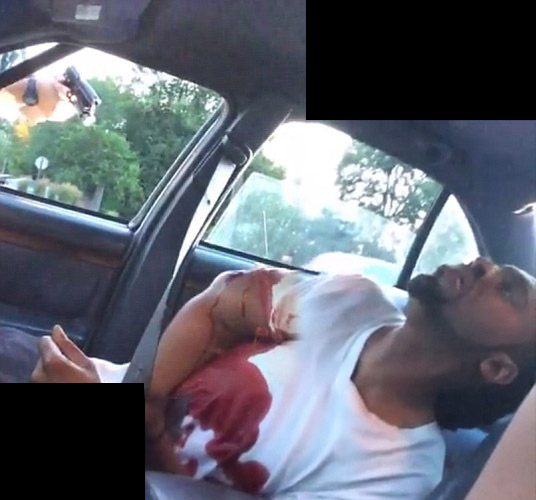Quis Custodiet Ipsos Custodes?
 I agree that when rogue police officers kill an unarmed black person, it does not and should not reflect on the million-plus law enforcement officers who are doing their jobs well. The problem is, though a million do their jobs as expected, thousands of others are corrupt and violent, and some of them commit murder. The majority of the good cops do not make the minority irrelevant or excusable.
I agree that when rogue police officers kill an unarmed black person, it does not and should not reflect on the million-plus law enforcement officers who are doing their jobs well. The problem is, though a million do their jobs as expected, thousands of others are corrupt and violent, and some of them commit murder. The majority of the good cops do not make the minority irrelevant or excusable.
When black people on the periphery of a Black Lives Matter protest commit wrongs, it is blamed directly on all of the non-violent, law-abiding Black Lives Matter protesters, who are castigated for not instantly condemning such acts—even when they do exactly that.
You see the disconnect: one group is not shamed for failing to condemn their brothers who commit crimes, the other is shamed even when they do.
Those million good cops are said to be protecting the people on any given day, which is true. They work hard for little pay, they face danger, they protect us, and they sacrifice. No one questions that.
However, there is an exception to the duty of protection. It is called the Blue Wall of Silence. Cops defend other cops. Along with a legal system inclined to not prosecute cops, a serious fault emerges. As asked by the Roman poet Juvenal, “Who will guard the guards themselves?” Because even the good ones are shielding the bad ones. It’s the code.
Can we really say that the police are in fact protecting the public when they defend their own who harm the public?
We did not accept that from the Catholic Church, when otherwise good clergy defended child molesters, allowing them to molest more children still—all in the name of defending the order.
 Why should we accept it from the police? This is far from a victimless crime. Just the deaths alone are in the hundreds each year. The beatings, tasings, stops based on race, and false arrests not ending in deaths number far greater than that.
Why should we accept it from the police? This is far from a victimless crime. Just the deaths alone are in the hundreds each year. The beatings, tasings, stops based on race, and false arrests not ending in deaths number far greater than that.
If the police are truly committed to defending the public, they must not shield those who violate that trust.
That is not happening, however. They do shield their brethren.
And that is a legitimate and powerful objection to the “good cops” point. They are supposed to be held to a higher standard; in fact, they are held to a much lower one.
The same can be said of prosecutors and judges who, even when the victim of a police shooting is known to not be a criminal, the word of the police officer is given every benefit of the doubt—even when video evidence directly contradicts their statements—while any blemish on the record of the accused robs them of any credibility, and it takes only the most egregious and blatant of crimes to result in a prosecution.
This is not justice. So long as this happens, the police are indeed failing in their duty to protect the public. Nor should you accept this as “the way it is” or “the way it has to be” simply because the job is difficult, or (hopefully not for this reason) you are not the one likely to be tased, beaten, shot, or killed at a traffic stop.
Quis custodiet ipsos custodes? It is a valid and important question, as it is rather clear that, at this time, the police are not policing themselves.
There is a term for that: being above the law.

 The
The